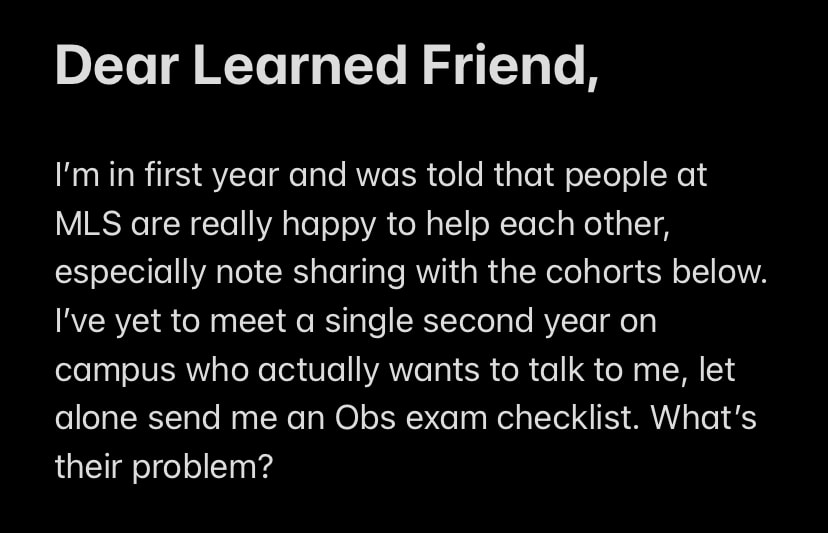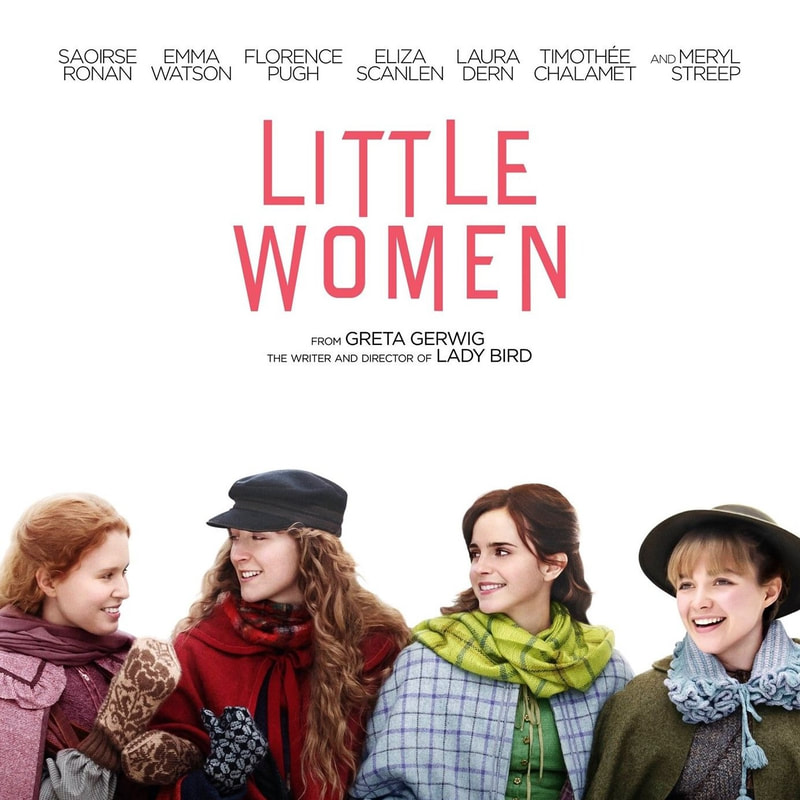|
Volume 19, Issue 8 Tim Irving Photo by Denise Jans on Unsplash Sadly, not every film can be the first Shrek – Not every film can be widely popular and beloved. It’s an immensely difficult task to accomplish, and to me is achieved through finding the perfect balance of artistic quality and commerciality. Raw filmmaking quality and the inclusion of advanced film techniques often creates enjoyable films, however enjoyable films that nobody bothers to see. On the flip side, extreme commerciality without real quality might achieve the $$$ at the box office, but nonetheless doesn’t translate into must-see events.
This particularly struck me watching this year’s Academy Awards, where it dawned on me the average person has arguably never even heard of many of the nominated films. This is especially noticeable in comparison to last year’s awards, where the nominated films were widely discussed, enjoyable, must-see events. In my own experience, many people recommended or wanted to go see films like Parasite, Once Upon a Time in Hollywood, Joker, and 1917. I can’t really recall anyone having recommended films from this year’s field of nominees to me. It goes without saying the dreaded COVID is greatly to blame. Cinemas were shut and movies were delayed out of this awards season, leading to a depleted field of nominees. It could also be said that there is a shift occurring away from movies and towards TV/streaming. It is undeniable that these reasons contributed, but I don’t think they are entirely to blame either. Many of the nominated films were available on streaming services, and for us in Melbourne cinemas have been open for many months. I’d also argue that while this was a depleted field of films, the major delayed films were probably unlikely to meaningfully compete and dramatically alter the field of nominees. Finally, while there probably is a general shift towards TV/Streaming, I don’t think it is sizeable enough to have established this degree of ambivalence for movies so quickly. Volume 19, Issue 8
Matt Harper Making the news these past few weeks was the bombshell news that Menulog, Australia’s homegrown food delivery rival to Uber Eats, is planning to trial giving its drivers employee status. This marks a radical departure from prevailing trends in the industry, with major players like Deliveroo and Uber Eats steadfastly maintaining an opposition to any moves to strip their drivers of their current classification as independent contractors. The announcement and what it may mean for the future of insecure work provides abundant fuel for thought about the ethical and economic implications of an ever-expanding gig economy, but it also raises some extremely interesting legal questions as well, leading us to question in whose favour these apparent acts of corporate charity are actually working. The changes were announced by Menulog’s managing director Morten Belling at, fittingly enough, a public hearing of the Senate Select Committee on Job Security on the 12th of April. The timing and nature of the announcement was clearly designed for maximum impact and effect, painting the company as the ‘good guys’ in an industry currently receiving a great deal of bad press for its perceived insecure, unsafe, and exploitative business model. Volume 19, Issue 8 Next Wednesday evening, the LSS will hold a Special General Meeting, to propose several changes to their Constitution. De Minimis has written this short analysis of the proposed changes, to help if you’re unsure what the proposed changes are all about. New rule: By far and away the biggest proposed change is the addition of a new rule: ‘Rule 61A Transparency’. In a proactive move, the new ‘Transparency’ rule will see the LSS publish key operating information, without Members needing to file a request. In addition, the Committee is charged ‘to ensure the transparency of the Association’. In the past, the LSS has drawn criticism for its perceived opacity, and it seems as though this new rule is aimed squarely at quashing such attacks. Certain information will still not be volunteered under the proposed change (membership information, for example, or details on sponsorships), but there are likely considered policy reasons for such omissions. It appears as though the change will also force a departure from the established practice of the LSS Committee approving the minutes of a meeting at the subsequent meeting, which currently delays access to minutes for weeks or months. It is also pleasing to see the explicit inclusion of key financial information in the list of items to be voluntarily published, after financial issues brought on by the COVID pandemic gave some Members an unwelcome surprise at last year’s AGM. The only issue in what is a very positive proposal is a spelling mistake in r 61A(3). If passed, this will have to be corrected at a future General Meeting. Nevertheless, the new rule is likely to be well-received by Members, who will be able to more easily oversee the activities of their representatives. Photo by Aaron Burden on Unsplash
Volume 19, Issue 7 Winston Baker In a move guaranteed to stoke tensions with the uni, the MLS Student Collective (MLSSC) today announced to pay for online classes in a manner more befitting their value.
Describing the decision as a “no brainer”, the Collective, which is comprised of all JD and MLM students, announced plans to pay for subjects undertaken online in the blockchain currency Dogecoin. “Digital lectures, digital currency. It just makes sense,” MLSSC President Pippa Henkerston said in a statement. “The amount paid for each subject will be calculated at a very reasonable Doge-AUD conversion rate of 1:1.” The University of Melbourne had not seen fit to lower fees as the change to online delivery took place last year, despite the qualitative difference in the service delivered. The new move is expected to cause friction with UniMelb administration, who are concerned the move may impact their ability to suck students dry. Volume 19, Issue 7
Rebecca Poynton *** content warning: sexual assault *** The federal government’s consent training video “moving the line” has been taken down after public backlash. The video aimed at year 10-12 students was ridiculed for a number of reasons, but mostly for insulting the intelligence of every human on the planet. Background “The Good Society” is a website created as part of the Australian Government’s “Respect Matters” program. The initiative is funded by the Australian Government Department of Education and aims to teach school-aged children the importance of respecting others in all aspects of life. The video in question is a part of “The Field Model” program (FM), a series introducing year 10-12 students to the notion of consent in their personal relationships. The FM covers a lot of ground and originally included four videos: “Stop, Ask, Listen”, “Yes, No, I Don’t Know!”, “Moving the Line”, and “Stepping In”. As of today only the first and last videos are available, “Yes, No, I Don’t Know!” was apparently taken down long ago for being even more ridiculous than “Moving the Line”. The Video – “Moving the Line” I must say, after seeing the many memes about Scotty’s absolute disaster of a government-approved educational video, I thought “surely it’s not that bad…”. I was wrong. It was bad. If you’d like to see it for yourself, one humble YouTuber, username MininCrafter, managed to upload the entire five minute video before Mr Morrison tried to erase the Godforsaken thing from living memory. If you’d rather not melt your eyes, essentially a young couple is shown drinking milkshakes before the girl proceeds to defy the laws of physics by grabbing a handful of milk and smearing it on her boyfriend’s face. The rest of the video uses the analogy to talk about when an abusive partner “moves the line” of consent and ignores your “no”. So what’s wrong? There are a number of things that this video does wrong. I’ll be touching on just one issue that I think is particularly noteworthy. The issue I have picked is the way the government has managed to reinforce the underlying harmful beliefs that they are trying to prevent, while simultaneously dumbing down the severity of sexual assault. Before I continue, I’d like to say that I will not tolerate any smack talk about the acting. Those unfortunate souls did the best they could with the milky mess they were given. I should also note that the series itself isn’t just about unwanted sexual advances. In later modules it goes on to cover a number of different scenarios couples face, such as spending each other's money or respecting when your partner really does not want to watch The Bee Movie for a fifth time. They confront these issues head on and have some rather uncomfortable scenarios acted out for the camera. To me this just makes the milkshake analogy all the weirder. Splatting a milkshake on your partner’s face, a ‘minor’ incident, is a very far cry from unwanted intercourse. How did this get past the drawing board? The video says that sometimes when a partner ‘moves the line’, that is ignores your ‘no’ in favour of their ‘yes’, you might not mind when it happens once, but start to get upset after a number of minor incidents. It says that the growing number of minor incidents or one serious incident might make you question your partner’s intentions and want to confront them about your issues with their behaviour. Ideally you both mend the problems in the relationship. Volume 19, Issue 7 By Philomena Anderson-Zhang Recently, my deliciously evil Spotify algorithm fed me the new version of Taylor Swift’s 2008 album, Fearless. After switching to a private session – a function which I only recently learnt of and now frequently use so that my 2021 top songs will finally align with my precariously constructed self-image – I remembered how catchy these tunes are. I was transported back to my tweenage years where I eagerly imagined the heartbreak and passion of songs like The Way I Loved You and Forever & Always. Although, now, as an emotionally stunted JD student, thinking about the kind of passion evoked by these songs makes me tired. I just want to arrive windswept, to a home where the only big thing about it is the mortgage, ABC News blaring through my car window. It seems like the rest of the world has also remembered how listenable the album is with it becoming a ‘No. 1 Album Again.’ This emotionally stunted JD student who is alarmingly behind in Copyright became curious as to whether T-Swift could actually re-record her entire oeuvre. The impetus for her decision to re-record has been widely publicised over the last few year. In short, T-Swizzle, supposedly like many artists, does not own the master rights to her back catalogue – these are usually owned by whoever financed the album. The label which owned her master rights was bought by another group and with that purchase came the rights to Taytay’s “musical legacy.” Something which she finds egregious as one of her many feuds is with the owner of this particular group. However, if she had signed away her rights, how is it that she is able to re-record her earlier work without fear of copyright infringement? A cursory google (not even google scholar) led this JD wunderkind to realise that owning the master copies are not the same as owning the copyright to the musical or literary works embodied in the songs. It is common practice for artists to sign away their rights to their music to the record labels which provided funding, particularly if the label is taking a risk on a relatively unknown newbie, as Schwifty was back in the day (I think; I don’t actually remember a time before the Swizzle). Volume 19, Issue 6 Dear Peeved with their Penultimate Peers,
It is an amazing feat for the class of 2020 to be associated with anything beyond beginning a law degree during a global pandemic, and yet this cohort has done just that. While law school is already known for being clique-y, second years have gone above and beyond (cute lil over-achievers). But don’t fret! It’s not just the first years being shunned, but also a large proportion of their own cohort. Volume 19, Issue 6
Melbourne Law School has won its bid to host Season 11 of the post-apocalyptic horror television series. The quiet Parkville building has beaten out a desert hideout in Death Valley and an abandoned medical facility in Chernobyl for the honour. Director Julius Joyce told De Minimis that location scouting for this sort of thing doesn’t usually involve university campuses, since residents tend to be too upbeat. “But that wasn’t an issue with this place,” said Joyce. “The law building is great because we don’t have to look far to find zombie extras. You students really know how to play the part.” A little hurt, I raised my eyebrows and asked what he meant by that. Volume 19, Issue 6
Winston Baker The hearts of the MLS community go out today to our very own Professor Jason Varuhas. The beloved Remedies teacher suffered dual puncture wounds to his neck after a scuffle on the mist-shrouded MLS Moor. This reporter visited the home of the Professor, as he takes time off to recover. What many people don’t know about ‘Big V’ (or Count Varuhas, as he is formally known), is that he hails from a long line of New Zealand nobility. He was kind enough to receive me at his family home – a beautiful building of undressed stone, set in the frigid North Island countryside. I was admitted past the heavy front door by Fushnchup, an austere man who helps the family tend to the house and grounds. Fushnchup showed me into a candle-lit drawing room, where I was graciously received by my host. Volume 19, Issue 5
Tim Irving 5 Stars Greta Gerwig’s Little Women (2019), available on Amazon Prime, is the most joyous film you’ll ever see. While the film did earn $200 million at the box office, and also received six Academy Award nominations, I’m of the opinion the film is underrated and underappreciated. To me, there are two possible reasons for this: Firstly, this is the seventh film adaptation of Louisa May Alcott’s 1868 novel of the same name, and I think this causes a degree of ambivalence towards any subsequent adaptation. Secondly, 50% of the population, and I think it’s pretty obvious who I’m talking about here, have either never read the novel or never seen one of the films. Further, this segment of the population likely has a certain apprehensiveness to a film with this title, and certainly an apprehensiveness to a film concentrating on four sisters. Volume 19, Issue 5
Matt Harper Margaret Thatcher once said that there is no such thing as society, only individuals. While Thatcher’s credentials as a sociologist might be doubted, former vice-president of the Fair Work Commission Graeme Watson seems to have taken her specious aphorism to heart in his crusade against collective bargaining in the Australian industrial relations system. The Australian Financial Review last week spruiked Watson’s recent appointment as a partner at Corrs Chambers Westgarth, with his stated purpose to “lead a push by business into agreements with staff that go around the failing enterprise bargaining system” – a move symptomatic of the Right’s increasing willingness to once again make industrial relations ‘reform’ a hot topic on the political and economic agenda, and break what remains of the already vastly reduced influence of unions and collective worker power in Australia. |
Archives
October 2022
|










